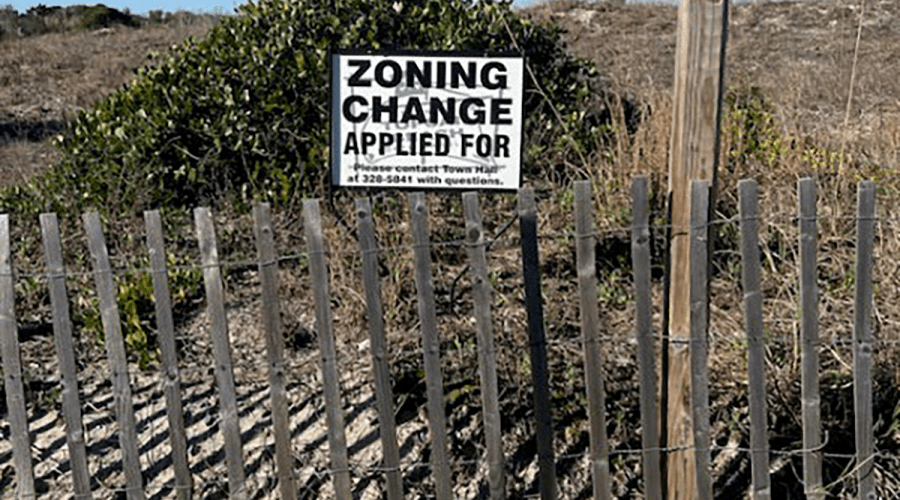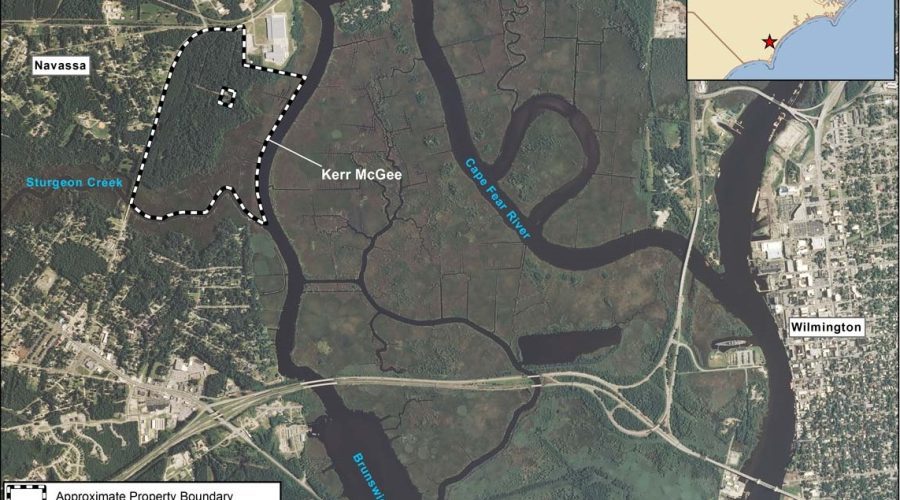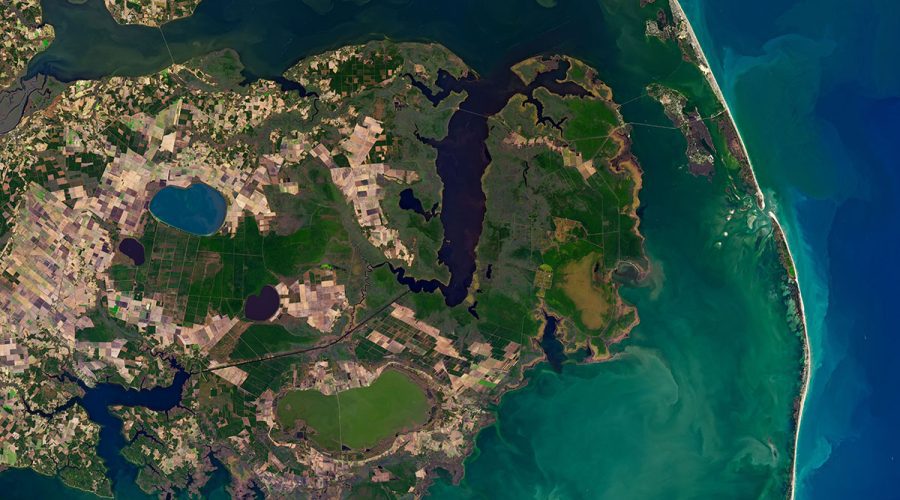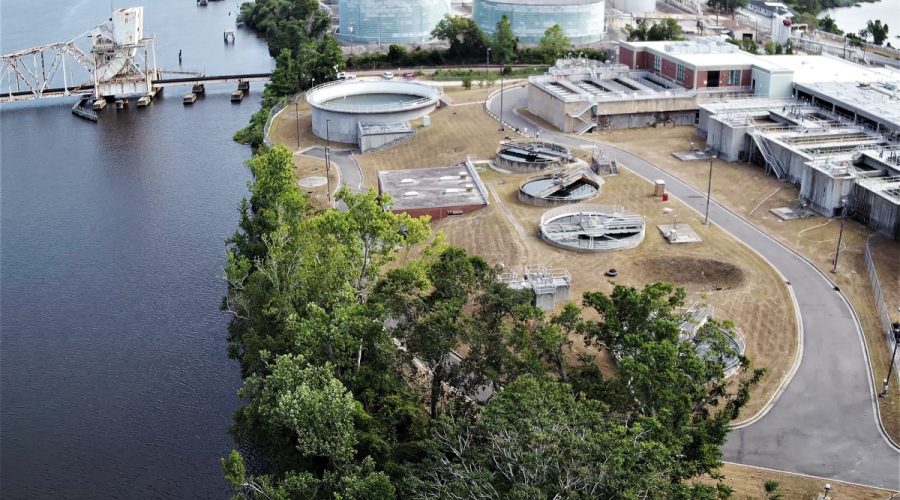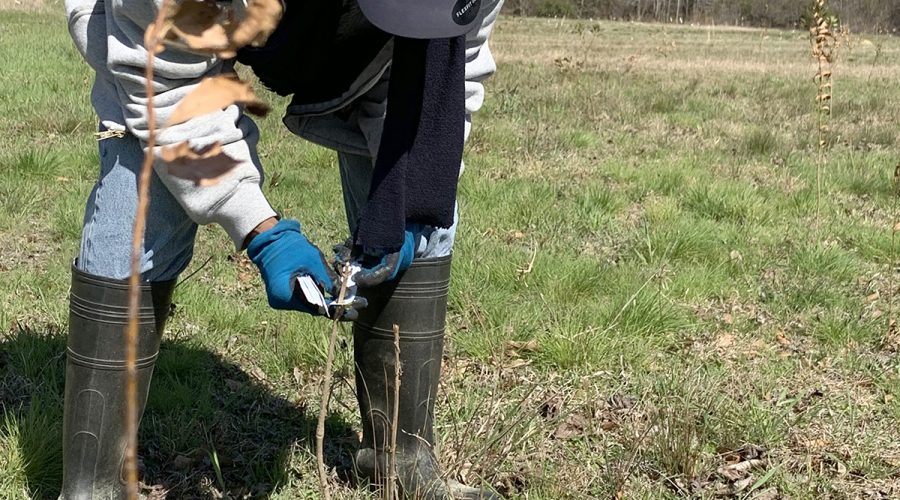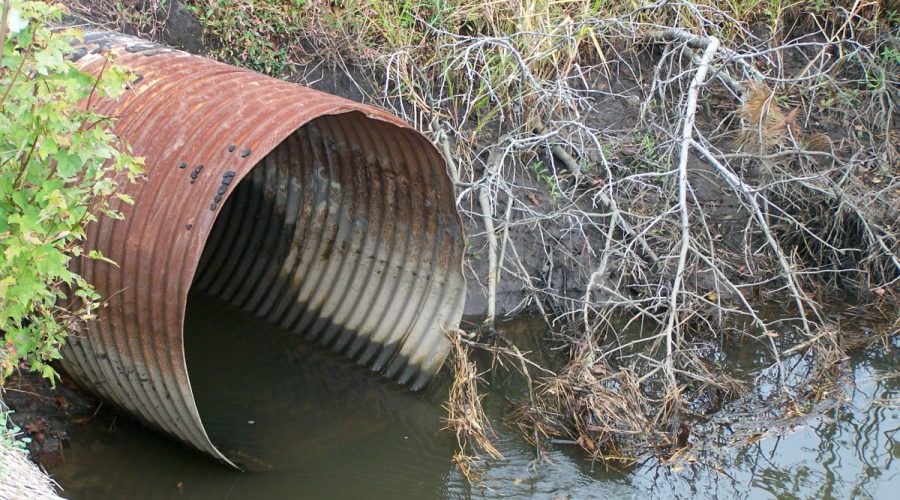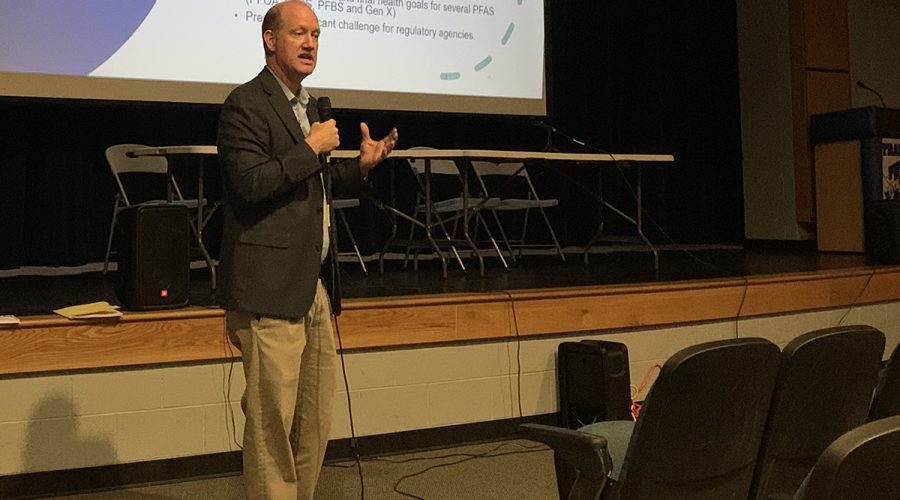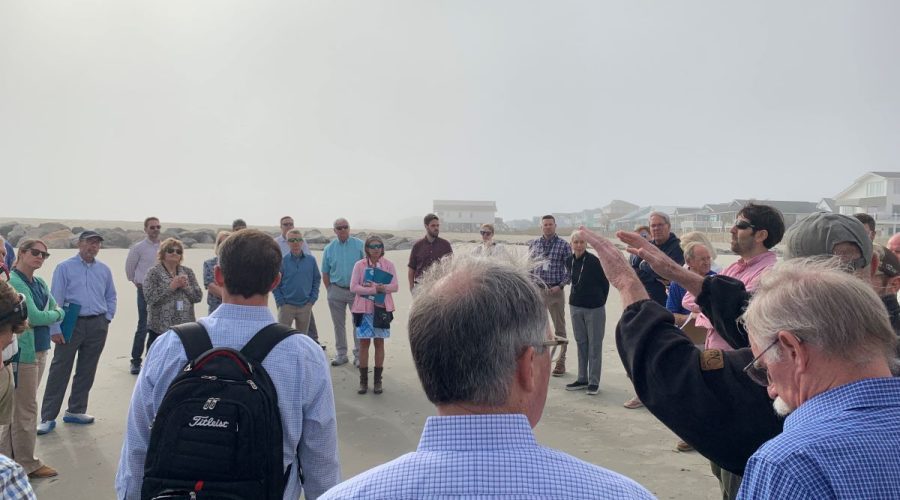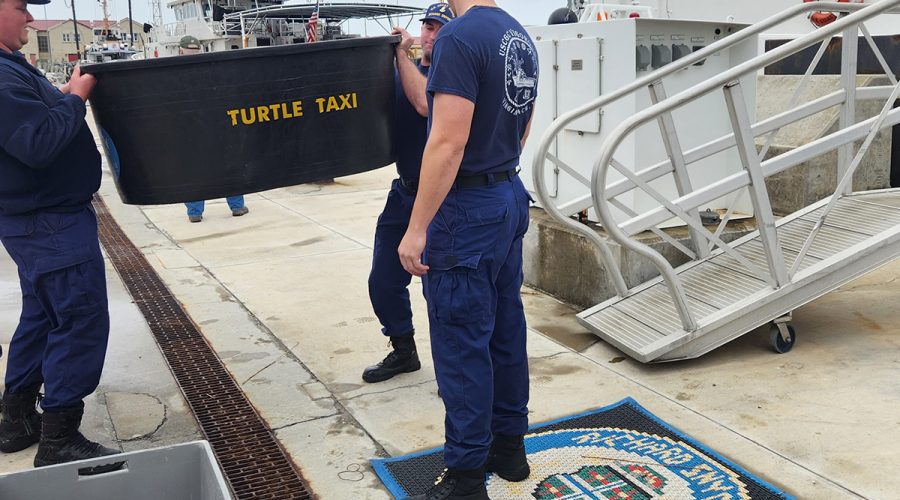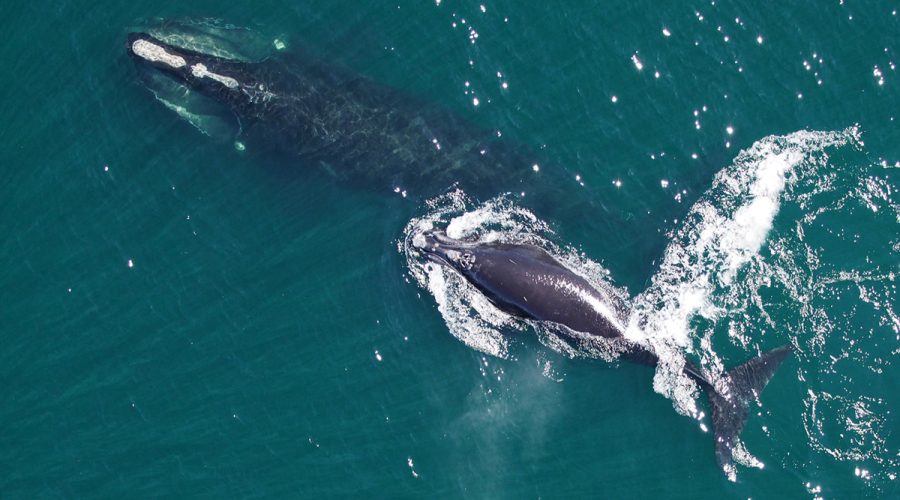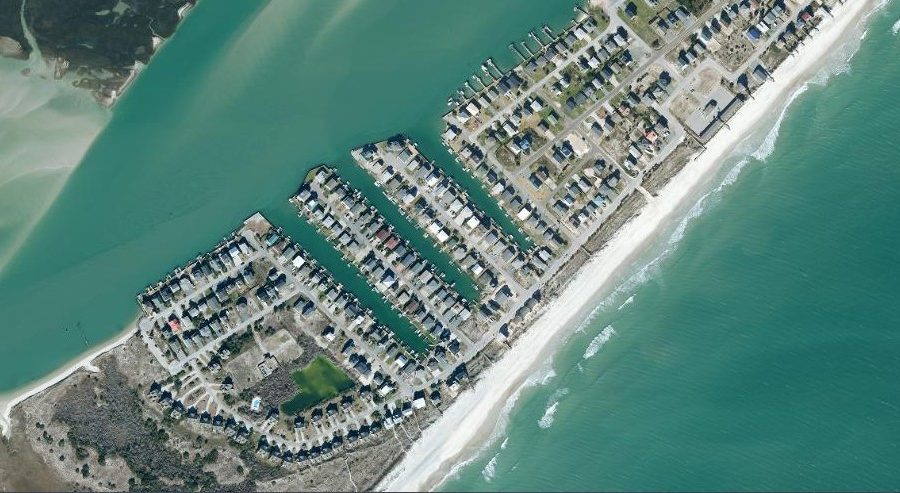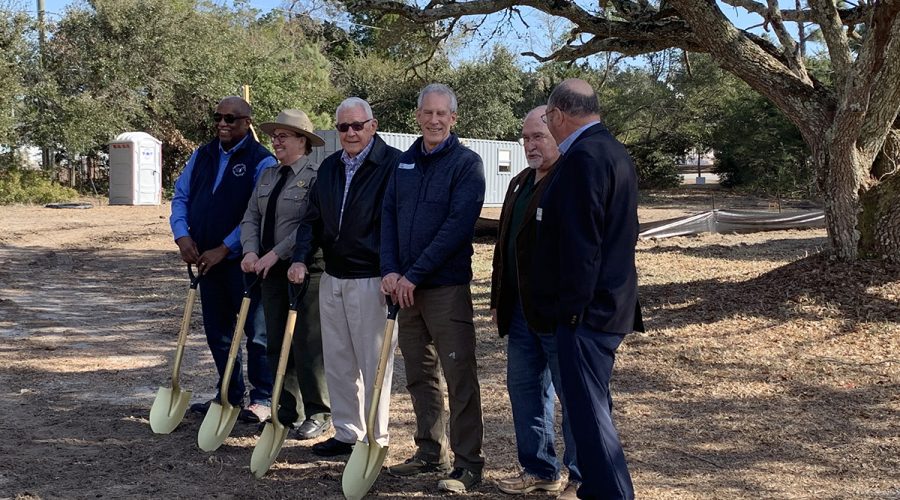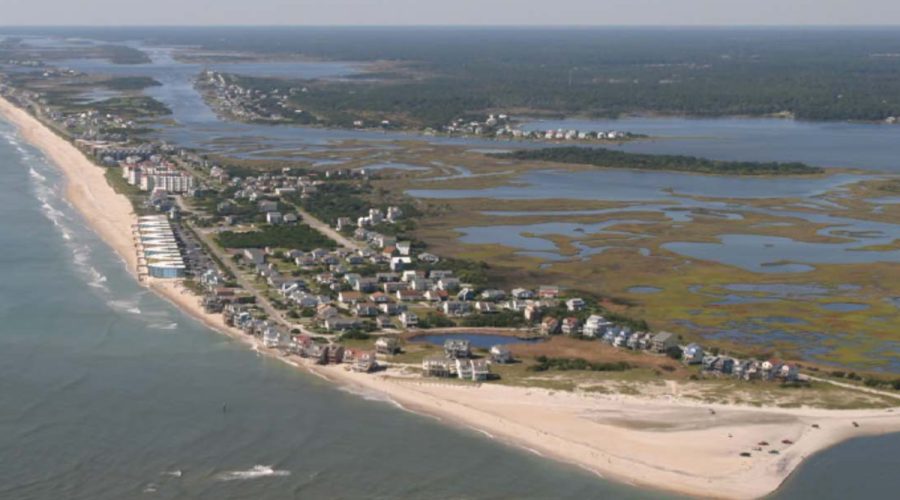Chief U.S. District Judge Richard Myers II on Friday released his decision to dismiss a lawsuit that would have forced Chemours to pay for health studies on dozens of chemical compounds manufactured at its Fayetteville plant.
Clock ticking for recommendation on Topsail Beach request
The town planning board met Monday and now has 65 days to recommend approving or denying Todd Olson’s request to rezone 30 acres in a conservation district on the inlet to allow seven homes to be built.
PFAS mitigation, DEQ staffing funded in Cooper’s budget
The proposed budget includes funding to address PFAS in drinking water sources and to support a team within DEQ to address PFAS statewide.
Navassa Superfund site cleanup to begin this summer
Area contractors are to dig up 3,000 cubic yards of contaminated soil when they begin work in June at the former Kerr-McGee Superfund Site.
Albemarle-Pamlico resilience gets $27.25 million boost
The U.S. Fish and Wildlife Service recently announced funding for the agency’s National Wildlife Refuge System for Albemarle-Pamlico restoration initiatives.
EPA rule would require water providers to monitor for PFAS
An Environmental Protection Agency rule would set limits on six per- and polyfluoroalkyl substances in public water systems with providers responsible for monitoring and notifying the public when levels exceed standards.
Woman turning family land into refuge for wildlife, herself
Sheba Shiver, who left a career as a clinical psychologist and returned to her family’s 50 acres in Pender County, was approved in 2021 for a conservation grant. While waiting for the money, she had more than 10,000 trees planted.
Cost-share funding for runoff management gains support
The state Environmental Management Commission has unanimously adopted a resolution calling for expanding and funding programs to help landowners manage and lessen polluted stormwater runoff.
PFAS testing: 1,000 homes qualify for filtration or tap, so far
As PFAS sampling continues on private drinking wells, nearly 1,000 households downstream of Chemours’ Fayetteville Works plant have levels that qualify for in-home filtration systems or a public water utility connection.
Ocean Isle Beach may test hay, pine straw bales to trap sand
The Brunswick County town has been granted a variance to use hay and pine straw bales as an alternative to sand fencing at six areas on the eastern end of the island.
Groups join forces to save, release cold-stunned sea turtles
The state’s three aquariums, with help from the Coast Guard, National Park Service, veterinarians and others, recently released more than 100 sea turtles back into warmer ocean waters.
Scientists dispute claims behind call for wind moratorium
Researchers say there’s no evidence that offshore wind development surveys contributed to the recent deaths of whales along the Mid-Atlantic coast, where officials have called for a moratorium.
Paid parking ‘a major issue’ in Topsail Beach
Topsail Beach, the lone town on Topsail Island to maintain free public parking, could be next in joining the ranks of beach towns that charge public parking fees.
New chapter begins for Black teachers’ old meeting space
Officials broke ground Friday for the renovation of the more than 5,300-square-foot building at Hammocks Beach State Park where Black educators convened during segregation.
Topsail Island panel to lobby for terminal groin funding
North Carolina law bars state money for terminal groins, but the Topsail Island Shoreline Protection Commission has made it a goal this year to change that law.
Researchers to evaluate why some seagrasses adapt better
University of North Carolina Wilmington researchers Jessie Jarvis and Stephanie Kamel recently received a grant to study seagrass resilience to help reverse the course of declining underwater meadows.


